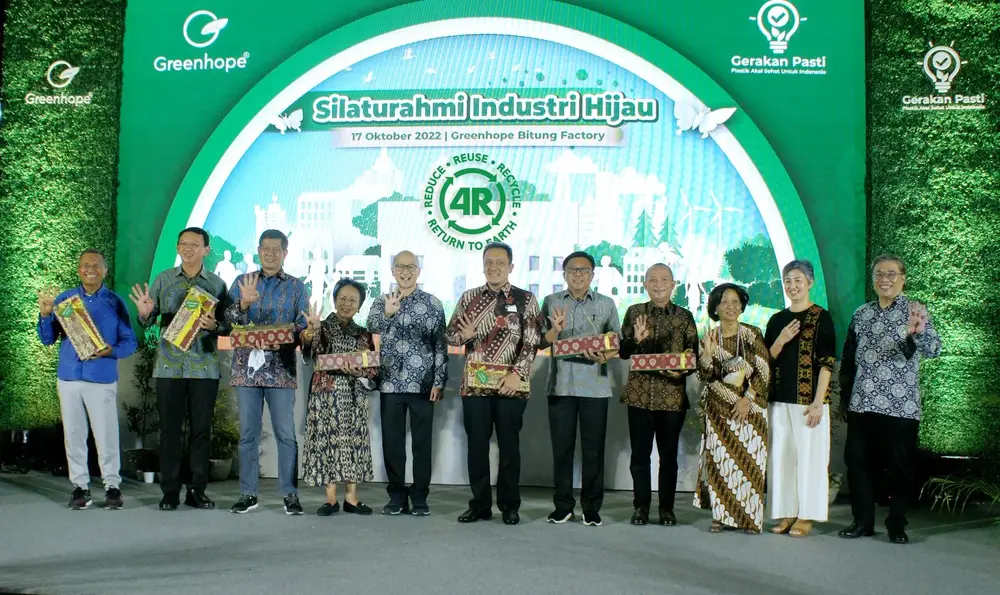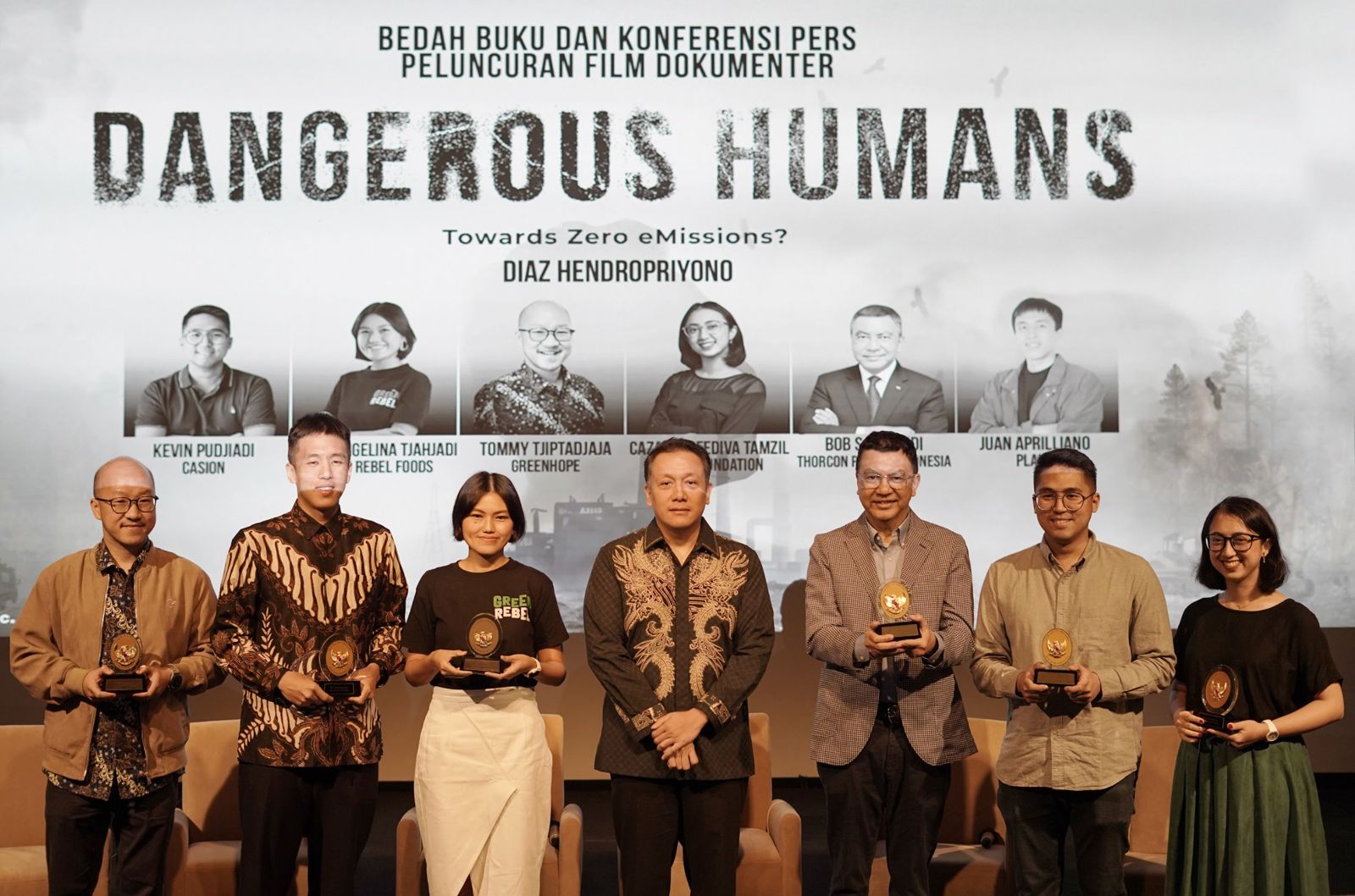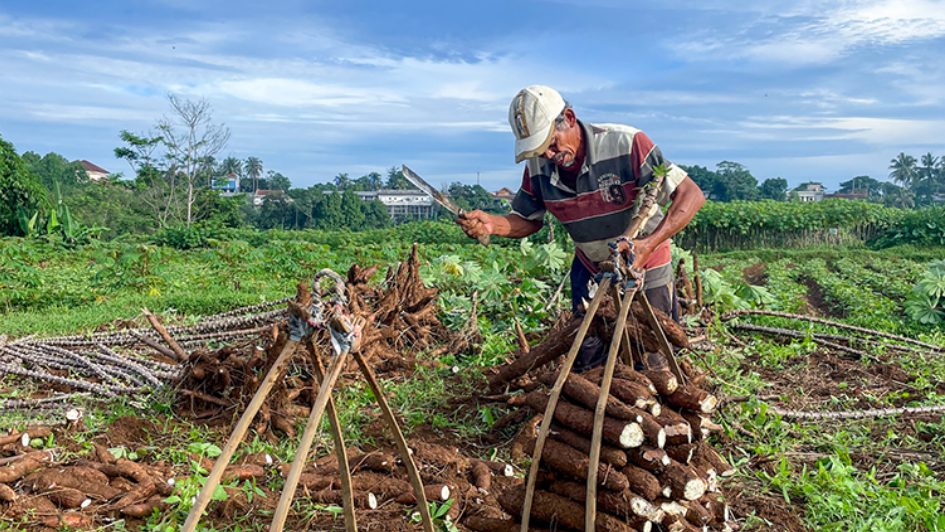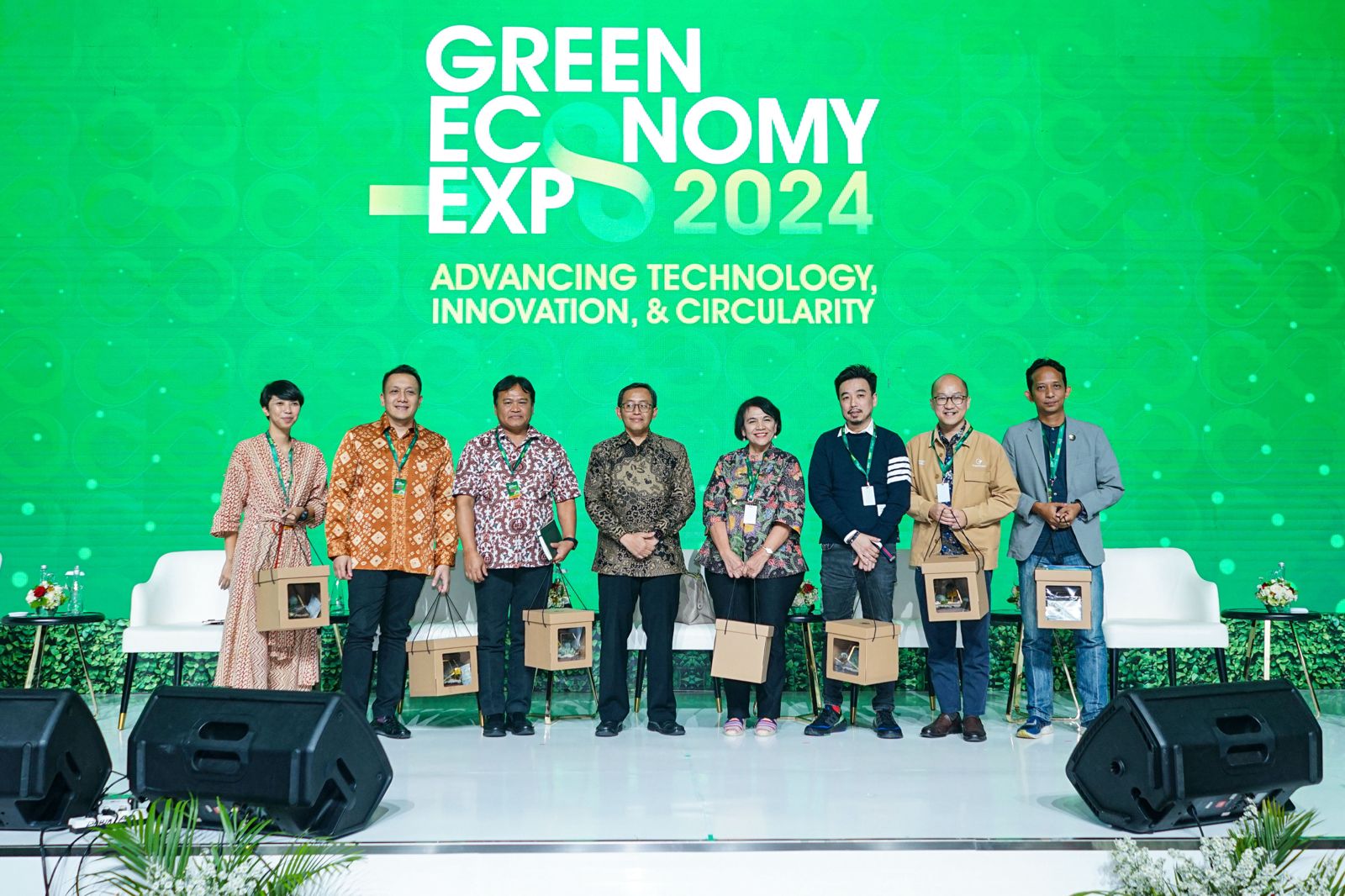Collaboration to Tackle Plastic Waste, Government and Community Support 4R Solution
Tuesday, 25 October 2022
Collaboration to Tackle Plastic Waste, Government and Community Support 4R Solution
Tangerang - The government aims to reduce marine debris by 70 per cent by 2025. Unmitigated, 16 ministries and institutions collaborate to fulfil this ambitious target in accordance with Presidential Regulation No. 83 issued in 2018.
Various efforts have been made from upstream prevention to downstream handling. One of the preventive measures taken is the use of biodegradable plastic materials. One of the companies that has done this is Greenhope. This technology company that produces environmentally friendly plastic resins is creating solutions to deal with plastic waste pollution.
To support the development of the biodegradable plastic industry, Minister of Industry Agus Gumiwang Kartasasmita, represented by the Head of the Industrial Services Standardisation and Policy Agency (BSKJI) Doddy Rahadi, attended the Green Industry Gathering initiated by Greenhope together with the Pasti Movement (Healthy Akal Plastic for Indonesia), on Monday (17-9-2022). ‘There is no single solution to overcome this complex plastic waste problem so it needs a holistic and contextual solution that is in accordance with the socio-economic community, climate and geographical conditions of Indonesia,’ said Doddy.
Furthermore, he said that the Return to Earth Solution is a breakthrough effort in the form of biodegradable plastic innovations that can minimise the generation of plastic waste. ‘This fourth R can be a solution for small packaging plastics that are contaminated and difficult to recycle so that they do not become a burden on the environment because they have not been able to be overcome by the 3R method (Reduce, Reuse, and Recycle),’ he added.
In addition to representing the Minister of Industry, in the event which was also the inauguration of the operation of Greenhope's new factory, there were also representatives from five elements (pentahelix) namely government, business actors, academics, media and community. Representatives of the five elements include: Chairman of the Indonesian Army Retired Association (PPAD) Lieutenant General (Ret.) Doni Monardo, Deputy of the National System (Sisnas) of the National Resilience Council Syachrial E. Siregar, Presidential Special Staff for Strategic Communication Diaz Hendropriyono, Chairperson of the Pasti Movement (Plastik Akal Sehat untuk Indonesia) Naning Adiwoso, President Commissioner of Disway Dahlan Iskan, President Commissioner of Pertamina Basuki Tjahaja Purnama, Chairman of the National Plastic Action Partnership (NPAP) Tuti Hadiputranto, Founder and CEO of Greenhope Tommy Tjiptadjaja, Founder and CIO of Greenhope Sugianto Tadio, ITB academic Professor Akhmad Zainal Abidin, President Director of PT Suparma Edward Sopanan. In addition to these names, there were around 200 other attendees from various elements of the pentahelix.
On the same occasion, Chairman of the Central Executive Board of the Indonesian Army Retired Association (PPAD) Lieutenant General (Ret) Dr (HC) Doni Monardo expressed his appreciation for Greenhope's contribution to the success of the ‘Citarum Harum’ programme. He said that the use of Greenhope's Ecoplas seedling bags made from cassava was able to increase the success of planting seedlings in the upstream area of the Citarum River. ‘Millions of coffee seedlings and green plants planted in the upstream Citarum area have also shown good progress. One of them produces premium coffee beans that have no plastic content,’ explained the former deputy commander of the Citarum Harum Task Force.
Mentioning the coffee seeds that were planted with Ecoplas seed bags several years ago, Doni said that the results had been harvested and purchased by PT Kapal Api. ‘And now the information has entered the European market, especially Italy. This means that the quality of this coffee is premium, there is no plastic content in the coffee beans,’ he said.
In addition to using biodegradable plastic materials, Doni also appealed to all levels of society to make behavioural changes for the sake of environmental sustainability. According to him, without a collective awareness to improve the environment, the vision of ‘Golden Indonesia 2045’ will be difficult to realise, leaving only ‘Anxious Indonesia’. ‘But as many parties are now working hard to protect our country's ecosystem, the Golden Indonesia, God willing, will be realised,’ he said.
Adding to the occasion, Greenhope Co-Founder and CEO Tommy Tjiptadjaja said that to solve the problem of plastic waste solutions, it is necessary to consider the various variables that exist in Indonesia. ‘All solutions or innovations that emerge must pay attention to local aspects, namely culture, socio-economic level, waste handling infrastructure, geographic complexity and climate,’ he added.
With these considerations, the man who won the Sociopreneur award from the World Economic Forum argues that the circular economy in Indonesia will work if three stages of innovation are carried out. ‘There needs to be technological innovation that produces biodegradable plastics, process innovation that involves sorting and processing waste, and social innovation that stimulates changes in mindset and behaviour,’ explained Tommy.
What needs to be emphasised, he added, is that each solution, whether reduce, reuse, recycle or return to earth, has its own advantages and disadvantages so that the side effects need to be managed. ‘The plastic waste problem is a systemic problem so there is no single R solution that is the best alone, all must be holistic and contextual and affordable,’ he said. With this belief, he said that Greenhope is ready to partner with various parties to collaborate in handling plastic waste.
Tommy's statement was echoed by the Chairperson of the Pasti Movement, Naning Adiwoso. ‘Handling plastic waste is not easy, we need to do a mindset change campaign by conducting a campaign to the people at the lowest level in addition to educating them to start changing to the use of biodegradable plastic waste,’ he concluded.
Plastic waste pollution is one of the causes of the environmental crisis that leads to climate change. Inevitably, humans have to change their habits. From being ignorant of the environment to being more environmentally conscious. Due to this fact, sustainable green industry has become a global trend. It is not only a business opportunity but also builds world civilisation. ‘Kadin, as a home for industrial businesses, is committed to exploring the green industry in Indonesia with its various challenges,’ said Kadin Chairman Arsjad Rasjid on the same occasion. This commitment, he continued, will be carried out by encouraging the green industry sector through networks at home and abroad through bilateral agreements. ‘Then we also encourage public and private partnerships to develop the green industry,’ he concluded.
Greenhope and Gerakan Pasti Declare Collaboration with Three Waste Management Startups
Not only on paper, Greenhope and Gerakan Pasti also signed a Memorandum of Understanding (MoU) for 4R collaboration (Reduce, Reuse, Recycle and Return to Earth).
The agreement was made by business entities and NGOs together with three waste management startups, namely Jangjo, Rekosistem, and Green Prosa. Secretary General of the Pasti Movement Variaty Johan in the Green Industry Gathering explained that the collaboration of the five institutions was in the form of education to change people's mindset towards waste management, sorting and managing plastic waste, managing organic waste and using biodegradable plastics.
In detail, he said that the projects will be implemented in Jakarta, Banyumas and Surabaya. ‘With this collaboration, we want to show that each solution can complement each other and the impact on society will be greater,’ he concluded.



